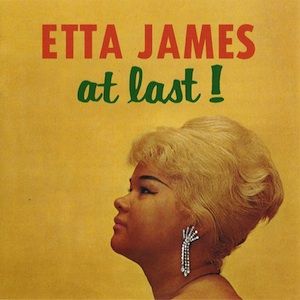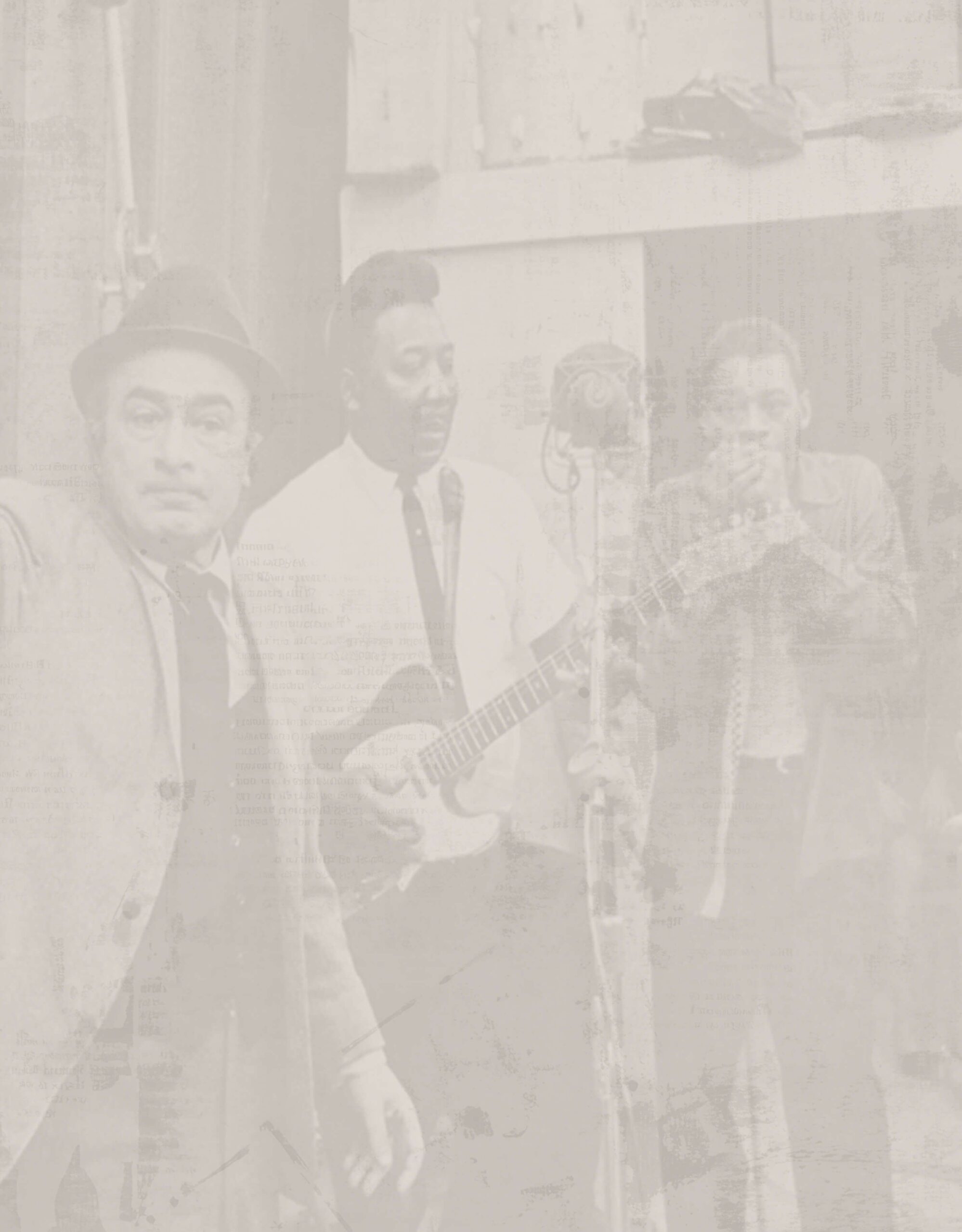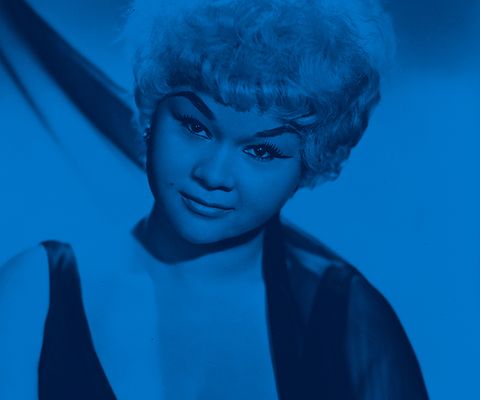Etta James
Etta James
“Etta James is the only artist I’ve ever properly believed when I listened to her.” - Adele
Chess Records’ roster had plenty of powerful guitarists - but there may have been no voice on the label more versatile than that of Etta James. That expressive contralto, able to take on bouncy R&B numbers, smoky jazz, rafter-shaking torch songs and even gospel’s salvation, remains a gold standard for generations of singers.
Jamesetta Hawkins was born in Los Angeles in 1938. Her upbringing was marked by trials and trauma: her mother was only 14 when she gave birth to young Jamesetta, and she suffered physical abuse at the hands of her foster father as well as the Baptist preacher who offered her first vocal lessons. In 1950, she moved to San Francisco and later formed a doo-wop group called The Creolettes. At the age of 14, she met R&B impresario Johnny Otis, who took the group under his wing; they were renamed The Peaches, and Jamesetta was given the stage name Etta James.
Otis and Etta would co-write an answer song to Hank Ballard’s popular “Work with Me Annie,” creating the rollicking “The Wallflower.” Released by the Modern label in 1955, it topped Billboard’s R&B chart for four weeks. After The Peaches toured as an opening act for Little Richard, Etta decided to go solo, but spent several years trying to find the right songs and sound. In 1960, she departed Modern for Chess Records’ Argo imprint, a label that allowed her to try any and all styles of music that struck her fancy. Early hits for the label included “If I Can’t Have You,” a duet with labelmate and romantic interest Harvey Fuqua of The Moonglows, and “All I Could Do Was Cry,” a No. 2 R&B hit co-written expressly for her by an up-and-coming Detroit-based record exec named Berry Gordy, the man behind Motown Records.
Etta James’ most enduring single from this early era wasn’t a soul song, but a smoldering Glenn Miller-penned ballad called “At Last.” Bolstered by swirling strings and propelled by her impassioned vocal, the song missed the pop Top 40 but became an enduring standard - a staple of weddings to this day. Another major hit for Etta was “Something’s Got a Hold on Me,” which incorporated elements of soul and gospel and reached the No. 4 on Billboard’s R&B chart. It was later sampled twice in 2011, on Avicii’s international dance hit “Levels” and rapper Flo Rida’s Top 5 pop hit “Good Feeling.”
She returned to the R&B Top 10 in 1967 with the scintillating “Tell Mama,” recorded at the storied FAME Studios in Muscle Shoals, Alabama. Etta would experiment with rock, funk and soul through the ‘70s before pausing her career for a decade to kick a drug and alcohol addiction. When she re-emerged in the late ‘80s, she was a living legend: the Rock and Roll Hall of Fame inducted her in 1993, she was given a Grammy Lifetime Achievement Award in 2003, and “At Last” was inducted into the Grammy Hall of Fame in 1999 and selected for the Library of Congress’ National Recording Registry in 2008. Before her death in 2012, countless soul and pop singers hailed her as an inspiration, from Janis Joplin and Christina Aguilera to Adele and Amy Winehouse.
Chess Records’ roster had plenty of powerful guitarists - but there may have been no voice on the label more versatile than that of Etta James. That expressive contralto, able to take on bouncy R&B numbers, smoky jazz, rafter-shaking torch songs and even gospel’s salvation, remains a gold standard for generations of singers.
Jamesetta Hawkins was born in Los Angeles in 1938. Her upbringing was marked by trials and trauma: her mother was only 14 when she gave birth to young Jamesetta, and she suffered physical abuse at the hands of her foster father as well as the Baptist preacher who offered her first vocal lessons. In 1950, she moved to San Francisco and later formed a doo-wop group called The Creolettes. At the age of 14, she met R&B impresario Johnny Otis, who took the group under his wing; they were renamed The Peaches, and Jamesetta was given the stage name Etta James.
Otis and Etta would co-write an answer song to Hank Ballard’s popular “Work with Me Annie,” creating the rollicking “The Wallflower.” Released by the Modern label in 1955, it topped Billboard’s R&B chart for four weeks. After The Peaches toured as an opening act for Little Richard, Etta decided to go solo, but spent several years trying to find the right songs and sound. In 1960, she departed Modern for Chess Records’ Argo imprint, a label that allowed her to try any and all styles of music that struck her fancy. Early hits for the label included “If I Can’t Have You,” a duet with labelmate and romantic interest Harvey Fuqua of The Moonglows, and “All I Could Do Was Cry,” a No. 2 R&B hit co-written expressly for her by an up-and-coming Detroit-based record exec named Berry Gordy, the man behind Motown Records.
Etta James’ most enduring single from this early era wasn’t a soul song, but a smoldering Glenn Miller-penned ballad called “At Last.” Bolstered by swirling strings and propelled by her impassioned vocal, the song missed the pop Top 40 but became an enduring standard - a staple of weddings to this day. Another major hit for Etta was “Something’s Got a Hold on Me,” which incorporated elements of soul and gospel and reached the No. 4 on Billboard’s R&B chart. It was later sampled twice in 2011, on Avicii’s international dance hit “Levels” and rapper Flo Rida’s Top 5 pop hit “Good Feeling.”
She returned to the R&B Top 10 in 1967 with the scintillating “Tell Mama,” recorded at the storied FAME Studios in Muscle Shoals, Alabama. Etta would experiment with rock, funk and soul through the ‘70s before pausing her career for a decade to kick a drug and alcohol addiction. When she re-emerged in the late ‘80s, she was a living legend: the Rock and Roll Hall of Fame inducted her in 1993, she was given a Grammy Lifetime Achievement Award in 2003, and “At Last” was inducted into the Grammy Hall of Fame in 1999 and selected for the Library of Congress’ National Recording Registry in 2008. Before her death in 2012, countless soul and pop singers hailed her as an inspiration, from Janis Joplin and Christina Aguilera to Adele and Amy Winehouse.



